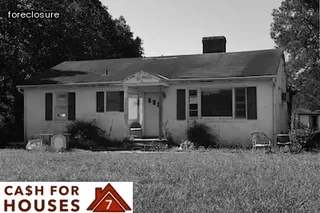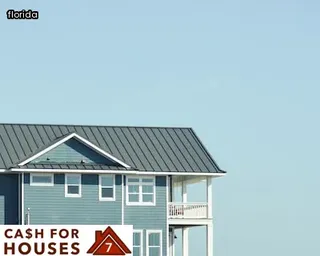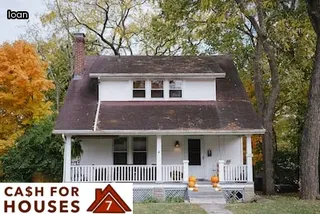When considering foreclosure as a financial solution in Florida, it is important to understand the pre-foreclosure process. Before entering into foreclosure proceedings, homeowners must receive a notice of default from their lender.
This document outlines the amount due on the loan and provides an opportunity for the homeowner to bring their mortgage current or negotiate with their lender. Once this notice has been issued, it will be recorded with the county clerk's office, signifying that a foreclosure action has begun.
The homeowner then has a set amount of time to catch up on payments before a foreclosure auction is scheduled. In Florida, this timeline typically ranges from 30-90 days depending on the lender.
During this period, homeowners may also explore other options such as loan modification or short sale. It is also possible for lenders to offer forbearance plans or repayment plans if they deem it necessary.
With all of these options available, understanding Florida's pre-foreclosure process can help homeowners make an informed decision about how best to address their delinquent mortgage payments.

The COVID-19 pandemic has had a profound effect on the housing market and foreclosure process in Florida. After the onset of the pandemic, many homeowners have struggled to make mortgage payments, resulting in an increase in foreclosures.
To further complicate matters, different parts of the state have their own regulations and timelines for foreclosure proceedings. Understanding these regulations and timing is essential for those facing foreclosure, as it can significantly impact their financial situation.
Because of the current situation, some courts are allowing more time for homeowners to respond to foreclosures or stay proceedings altogether. This means that even if a homeowner is behind on payments, they may still be able to work out an arrangement with their lender or find other solutions to keep their home.
On the other hand, if a homeowner does not take advantage of this extra time and misses a payment deadline, they could face serious consequences including losing their home altogether. With so much uncertainty surrounding COVID-19 and its effects on the housing market, it’s important for those facing foreclosure to stay informed about all available options when it comes to halting or delaying proceedings in order to protect their financial wellbeing.
In Florida, the statute of limitations for foreclosures is five years from the date of default. This means that if a homeowner is unable to make payments on their mortgage and defaults on the loan, then the lender has five years from that date to initiate foreclosure proceedings.
It's important for homeowners to understand this timeline as it can have a significant impact on how long they remain in their home and how much money they are able to save or lose. The statute of limitations also affects what options are available to homeowners who are facing foreclosure.
In some cases, it may be beneficial for homeowners to wait until after the statute of limitations has expired before taking action, as this will provide them with more time to explore other solutions and potentially avoid losing their home altogether. Additionally, understanding when the statute of limitations expires can help homeowners prepare financially for foreclosure proceedings and plan accordingly.

Gaining insight into preforeclosure and foreclosure procedures in Florida is essential for those interested in buying a home. Knowing the timing of the foreclosure process can be especially helpful as it can give potential buyers more bargaining power when negotiating prices with sellers.
In Florida, preforeclosure typically begins with an intent to accelerate letter sent by a lender to the mortgagor. This letter is an official notification that the borrower has failed to make mortgage payments and is at risk of foreclosure.
After this letter, there are several steps that must take place before a property enters the actual foreclosure process such as filing a lis pendens, obtaining a judgment of foreclosure, and conducting a judicial sale. Each of these steps takes time and, depending on the circumstances, may require additional legal action from either party involved.
Understanding how long each step takes provides buyers with more information and knowledge about when it might be best to make an offer on a property that is going through foreclosure or preforeclosure in Florida.
When facing foreclosure in the state of Florida, it can be a stressful and overwhelming experience. However, although it may feel like you have no options, there are in fact many solutions available to help stop a foreclosure.
In order to explore these potential solutions, homeowners must first understand the timeline for foreclosures in Florida. Knowing when the process starts and what steps to take after being served with notice of a foreclosure filing is key for discovering which options are available.
Homeowners should also consider consulting with an experienced attorney who specializes in Florida foreclosure law to learn even more about their potential rights and remedies. Additionally, homeowners should look into resources such as legal aid clinics or mediation programs that can provide free or low-cost assistance.
Although it can be difficult, understanding the process and researching all available options can help homeowners avoid or delay an impending foreclosure.

Analyzing the legal steps required to file and serve a lawsuit in the context of foreclosure timing in Florida is an important part of understanding the process. In order to successfully file and serve a lawsuit, you must begin by filing a complaint with the court.
This document must include all relevant details about your case and should be served on the defendant in accordance with Florida law. You must then provide proof that the defendant was served correctly, either through an affidavit or other proof of service.
After that, you must wait for an answer from the defendant, which will determine how long it takes to proceed with your case. If you are successful in obtaining a judgment against the defendant, it is necessary to follow up with any necessary paperwork and documents related to enforcing the judgment.
Knowing these steps ahead of time can help you plan out your foreclosure timeline more effectively and prepare for any potential delays or complications along the way.
Establishing homeowners’ rights under state and federal laws is an important part of navigating the foreclosure process in Florida. Homeowners should first understand their rights under Florida law, which include the right to receive a notice of default, the right to dispute the foreclosure, and the right to redeem the property after foreclosure.
Additionally, homeowners may be protected by certain federal laws such as the Truth in Lending Act (TILA), which requires lenders to provide borrowers with written disclosure statements detailing all potential costs associated with taking out a loan. Homeowners should also familiarize themselves with regulations from the Fair Debt Collection Practices Act (FDCPA), which prevents lenders from engaging in deceptive or unfair practices when attempting to collect on a debt.
It’s important for homeowners to stay informed of their rights so they can protect themselves from any potential fraudulent lenders or activities that could lead to foreclosure.

When a homeowner in Florida receives a complaint, it's important to be aware of the options available for responding. Seeking the advice of a qualified attorney is always recommended, as foreclosure proceedings can vary significantly depending on the state and local laws.
It's also wise to act swiftly, as many states have deadlines that must be followed or risk losing certain rights. Depending on the nature of the complaint, homeowners may have options such as filing an answer or motion challenging jurisdiction or filing a counterclaim.
Additionally, if applicable, negotiating with the lender can be an option. This could involve attempting to modify loan terms or seeking mediation services, but it's important to be aware that some lenders do not offer these options.
Ultimately, understanding how to respond to a complaint is essential in order to protect one's rights and work towards an amicable resolution.
In Florida, the foreclosure process is initiated when a borrower defaults on their mortgage. During this process, lenders have the right to take possession of the property and sell it in order to recoup their losses.
One of the key steps in this process is known as the “discovery phase”. This phase gives borrowers an opportunity to respond to a lender's allegations regarding the loan and other details about the foreclosure.
During this phase, lenders must provide borrowers with certain documents that detail their rights in regards to foreclosure proceedings. These documents include a notice of default, a notice of sale, and a notice of acceleration.
The discovery phase also includes mediation sessions between borrowers and lenders which can help facilitate a resolution before the foreclosure is completed. It is important for borrowers to know their rights during this phase in order to ensure that they are able to protect themselves from any potential harm caused by foreclosure proceedings.

An eviction specialist plays an important role in the foreclosure process for Florida homeowners. The individual is responsible for ensuring all legal requirements are met and that the homeowner is following through with their obligations as specified.
It's important to understand how an eviction specialist fits into the timeline of a foreclosure in order to ensure a smooth process. The specialist works with both the lender and borrower to make sure that all parties are adhering to the relevant laws, including filing paperwork, sending notices, and scheduling court hearings.
Since delays can be costly, eviction specialists are tasked with ensuring that deadlines are met and that proper protocol is followed throughout each step of the foreclosure process. Additionally, they provide advice on best practices for navigating the foreclosure process and help borrowers determine their options when facing potential foreclosure.
It's essential to have a knowledgeable professional at your side during this time as they will have insight into the laws in place to protect both lenders and borrowers alike.
Investigating how interest, penalties and fees can affect a foreclosure in Florida is an important part of understanding the process. Interest accrues on the amount owed to the lender after defaulting on a mortgage payment, and this can greatly increase the amount that needs to be paid off before any foreclosure proceedings can take place.
Penalties and fees are also applied if payments are missed, so it's important to know when and why these charges will be imposed. The state of Florida has specific rules pertaining to such charges that must be taken into consideration in order to properly navigate through the foreclosure process.
Knowing when these charges will be levied is especially important for those looking to avoid or minimize them. Additionally, being aware of other deadlines and regulations associated with foreclosures in Florida can help ensure a smoother transition through this difficult process.

When it comes to facing a foreclosure, homeowners in the state of Florida have several options for defending themselves, depending on their particular situation. The most common way to prevent or delay a foreclosure is by filing for bankruptcy protection, which can provide an automatic stay, preventing creditors from taking any action against the debtor until the bankruptcy proceedings are complete.
Another option is to explore loan modifications and forbearance agreements with lenders, allowing debtors to reduce their monthly payments or temporarily suspend them altogether as they try to get back on their feet financially. Additionally, some borrowers may be able to negotiate repayment plans that work around their budget and income level.
Finally, if all else fails, there is always the option of simply selling the property before it goes into foreclosure and using any money earned from the sale towards paying off creditors. Ultimately, the best defense against a foreclosure will depend on each individual's situation and needs; however, it is important that homeowners take an active role in exploring available options and understanding their rights under Florida law so that they can make informed decisions about how to proceed.
When it comes to exploring alternatives to traditional foreclosure proceedings in Florida, there are several options available. Homeowners can negotiate with their lender on a loan modification or refinance, which could lower their monthly payment and extend the terms of their loan.
Another option is a short sale, which allows the homeowner to sell their property for less than what is owed on the mortgage, and the difference between the loan amount and sale price is written off by the lender. Homeowners may also be eligible for a deed-in-lieu of foreclosure, where they voluntarily transfer ownership of the house back to the lender in exchange for having all remaining debt forgiven.
Bankruptcy might also provide an opportunity for homeowners to avoid foreclosure if they are able to demonstrate that repaying their debt would cause undue hardship. Lastly, homeowners may choose to simply ride out the foreclosure process, although this could result in damage to their credit score and other potential consequences.

Foreclosure is a stressful and difficult process to face, but there are certain steps that can be taken to avoid or delay the sale. Knowing your options and understanding the timeline of foreclosure in Florida will help you make decisions that are best for your financial situation.
Firstly, it's important to understand when foreclosure proceedings may begin in Florida. Generally, lenders must send a notice of default after you have stopped making payments for at least 45 days.
After the notice is sent, the lender has 90 days to complete the foreclosure process with a sale date set for no sooner than 30 days after the notice is given. During this period, lenders may be willing to renegotiate loan terms with homeowners and offer alternatives such as loan modification or forbearance agreements.
Additionally, filing for bankruptcy can help stop foreclosure proceedings while still allowing homeowners time to find alternative solutions to their financial issues. Lastly, homeowners may take advantage of various state-specific programs such as those offered by Florida Housing Finance Corporation or through HUD-approved housing counseling agencies.
With knowledge of these options and an understanding of foreclosure timelines in Florida, homeowners can gain peace of mind while they work towards a better financial future.
It is important for homeowners to be aware of the signs of predatory lending practices during a foreclosure. These can often include lenders offering high-interest loans without considering the homeowner's ability to repay, encouraging borrowers to borrow large amounts of money, or taking advantage of vulnerable individuals.
Additionally, lenders may require that borrowers sign documents they haven't read or understand, or structure loans with hidden fees and penalties. If any of these tactics are used in connection with a foreclosure, it could indicate predatory lending practices are at play.
Homeowners should be aware that their rights are protected by law and take action if they feel like they are being taken advantage of. This could include seeking legal counsel or filing a complaint with the Consumer Financial Protection Bureau (CFPB) in order to protect their financial interests.
In the state of Florida, the timeline for foreclosure can vary depending on the type of loan and whether or not a homeowner is actively seeking to modify or refinance their loan. The average time from start to finish in a standard foreclosure case is typically anywhere from 90-120 days.
This timeframe can be shortened if the lender is able to secure an expedited judgment through a Final Judgment of Foreclosure. A Final Judgment of Foreclosure allows the lender to move quickly and proceed with the sale of a property within 30-45 days after it has been issued.
For homeowners who are actively working with their lenders and mortgage servicers, they may be able to receive additional time prior to foreclosure being filed. It is important for homeowners to keep in communication with their lenders and understand all available options that may help them avoid foreclosure proceedings altogether.
With proper understanding and knowledge of foreclosure timing in Florida, homeowners can make informed decisions on how best to protect their investment.

The process of foreclosure in Florida begins when a homeowner is unable to make their mortgage payments. Once the lender has determined that the homeowner has defaulted on their loan, they will notify the borrower with a Notice of Default.
This document outlines the amount due and triggers the start of the foreclosure process. Within 30 days of issuing this notice, lenders may file an official complaint in court to begin the foreclosure action.
In Florida, lenders must provide evidence regarding the loan balance and ownership of the mortgage during this court filing. After this is accepted by the court, homeowners must be served with notice of the foreclosure suit within 15 days.
Once served with these documents, homeowners have 20 days to respond or contest any claims made in suit filings. If no response is made by this deadline, lenders are permitted to request a final judgment from courts allowing them to sell or take possession of the property.
This process can take up to several months before it’s finalized and allows homeowners a chance to settle debts or negotiate different payment plans with lenders while they remain in their home.
In Florida, the timeline for when you must move out after a foreclosure is governed by state law. Generally, if you are unable to make payments and your lender has gone through the legal process of foreclosure, you will have a grace period of at least 30 days before you must leave the property.
After that time period, your lender may file an eviction action in court to legally remove you from the home. During this time, it is important to be familiar with your rights as a homeowner and understand the foreclosures process in Florida.
Knowing when you must move out can help you prepare for what comes next and make sure that all deadlines are met within the proper timeframe. With this knowledge, you can plan ahead and take proactive steps to ensure that everything goes smoothly during this difficult time.
In Florida, the amount of time you can go without paying your mortgage before facing foreclosure depends on several factors. Generally speaking, homeowners in Florida have up to 90 days of nonpayment before their lender will initiate the foreclosure process.
However, this timeline may be extended if the homeowner is able to obtain a loan modification or take other measures to pay back past due amounts. Once the 90-day period has elapsed, a public notice of default is filed with the court and lenders must wait an additional 45 days before starting the official foreclosure process.
During this 45 day period, homeowners still have an opportunity to avoid foreclosure by repaying past due amounts or agreeing to a loan modification plan with their lender. While it varies from case to case, borrowers typically have about 135 days of wiggle room before having their home foreclosed upon in Florida.